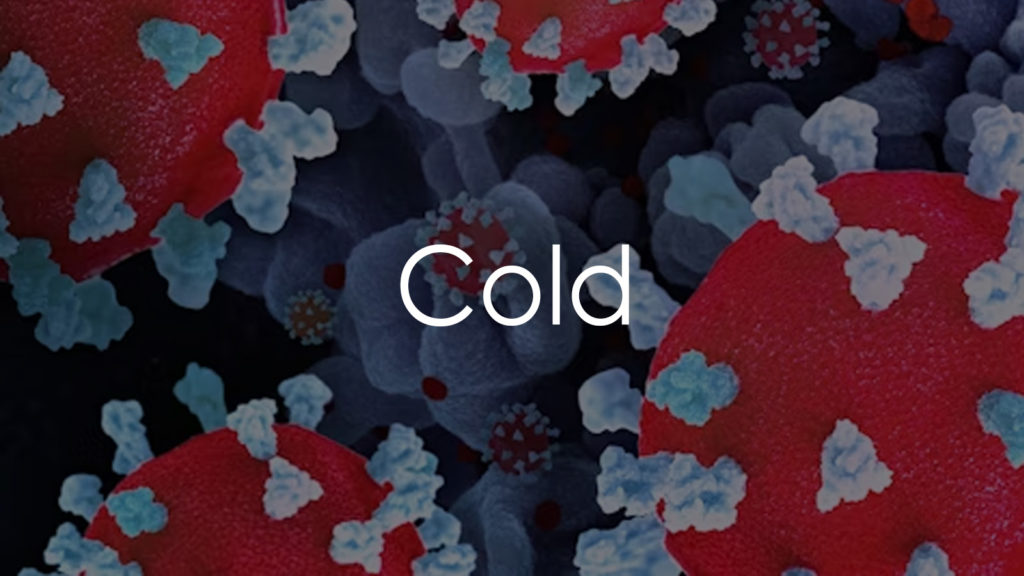Treatment of a cold involves a combination of self-care measures, over-the-counter medications, and home remedies to alleviate symptoms and support the body’s natural healing process. This article explores various treatment options for managing cold symptoms effectively, helping you recover more comfortably and quickly.

Self-care measures
Self-care is the cornerstone of treating a cold. Taking care of your body can help alleviate symptoms and speed up recovery.
Rest
Getting plenty of rest is essential when you have a cold. Your body needs energy to fight off the virus, and resting helps conserve that energy. Adequate sleep also supports your immune system and aids in recovery.
- Adequate Sleep: Aim for at least 7-9 hours of sleep each night.
- Limit Physical Activity: Avoid strenuous activities to allow your body to heal.
Hydration
Staying hydrated is crucial when you have a cold. Fluids help thin mucus, making it easier to expel, and prevent dehydration, which can exacerbate symptoms.
- Water: Drink plenty of water throughout the day.
- Warm Fluids: Consuming warm fluids like herbal teas, broths, and warm water with lemon can soothe a sore throat and provide comfort.
Nutrition
Eating a balanced diet supports your immune system and provides the nutrients needed for recovery.
- Fruits and Vegetables: Consume a variety of fruits and vegetables rich in vitamins and minerals.
- Light Meals: Opt for light, easy-to-digest meals if your appetite is reduced.
Over-the-counter medications
Over-the-counter (OTC) medications can help alleviate specific cold symptoms, making you more comfortable.
Pain Relievers
Pain relievers, which include medications used to reduce fever, headaches, and muscle aches associated with a cold, can help you feel better.
- Fever Reduction: Effective for lowering body temperature.
- Pain Relief: Helps alleviate discomfort from headaches and muscle aches.
Decongestants
Decongestants can help relieve nasal congestion by shrinking swollen blood vessels in the nasal passages.
- Oral Decongestants: Taken by mouth to reduce nasal congestion.
- Nasal Sprays: Applied directly to the nasal passages for quick relief.
Antihistamines
Antihistamines can help manage symptoms like a runny nose and sneezing by blocking histamines, the chemicals in your body that cause allergy symptoms.
- Runny Nose: Helps reduce nasal discharge.
- Sneezing: Minimizes the frequency and severity of sneezing.
Cough Suppressants and Expectorants
Cough suppressants and expectorants are used to manage coughing. Suppressants help reduce the urge to cough, while expectorants help loosen mucus so it can be more easily expelled.
- Cough Suppression: Reduces the frequency and severity of coughing.
- Mucus Clearance: Helps thin and loosen mucus in the respiratory tract.
Home remedies
Home remedies can complement self-care and OTC medications, providing additional relief from cold symptoms.
Steam inhalation
Steam inhalation helps relieve nasal congestion and soothes irritated airways. Inhaling steam from a bowl of hot water can help thin mucus and ease breathing.
- Nasal Congestion Relief: Clears nasal passages.
- Soothe Airways: Reduces irritation in the throat and lungs.
Saline nasal spray
A saline nasal spray can help moisturize dry nasal passages and reduce congestion. It is a simple, natural remedy that can be used several times a day.
- Moisturize Nasal Passages: Prevents dryness and irritation.
- Reduce Congestion: Helps clear nasal passages of mucus.
Honey and warm liquids
Honey, when added to warm liquids like tea, can soothe a sore throat and reduce coughing. Its antibacterial properties also provide additional health benefits.
- Soothe Sore Throat: Provides relief from throat irritation.
- Cough Reduction: Helps minimize coughing fits.
Gargling with salt water
Gargling with salt water can help reduce throat inflammation and pain. It is a simple remedy that can be performed several times a day.
- Reduce Inflammation: Soothes a sore throat.
- Pain Relief: Alleviates throat discomfort.
Preventative measures
Preventative measures can help reduce the severity and duration of cold symptoms. Taking these steps can also help prevent the spread of the virus to others.
Hand hygiene
Regular hand washing with soap and water can prevent the spread of viruses that cause colds. Using hand sanitizer when soap is unavailable is also effective.
- Reduce Virus Transmission: Prevents the spread of germs.
- Promote Overall Health: Maintains good hygiene practices.
Avoiding close contact
Limiting close contact with infected individuals can reduce your risk of catching a cold. If you are already sick, maintaining distance from others can help prevent spreading the virus.
- Reduce Exposure: Avoid close contact with sick individuals.
- Protect Others: Minimize the risk of spreading the virus.
Maintaining a healthy lifestyle
A healthy lifestyle supports your immune system, making you less susceptible to infections. Regular exercise, a balanced diet, and sufficient sleep are crucial components.
- Immune System Support: Boosts your body’s natural defenses.
- Overall Well-being: Promotes better health and resilience.
Conclusion
Treating a cold effectively involves a combination of self-care measures, over-the-counter medications, and home remedies. By understanding and utilizing these treatment options, you can alleviate symptoms and support your body’s recovery process. Additionally, adopting preventative measures can help reduce the risk of catching a cold and spreading it to others. If symptoms persist or worsen, consulting with a healthcare professional is recommended to ensure proper treatment and recovery.